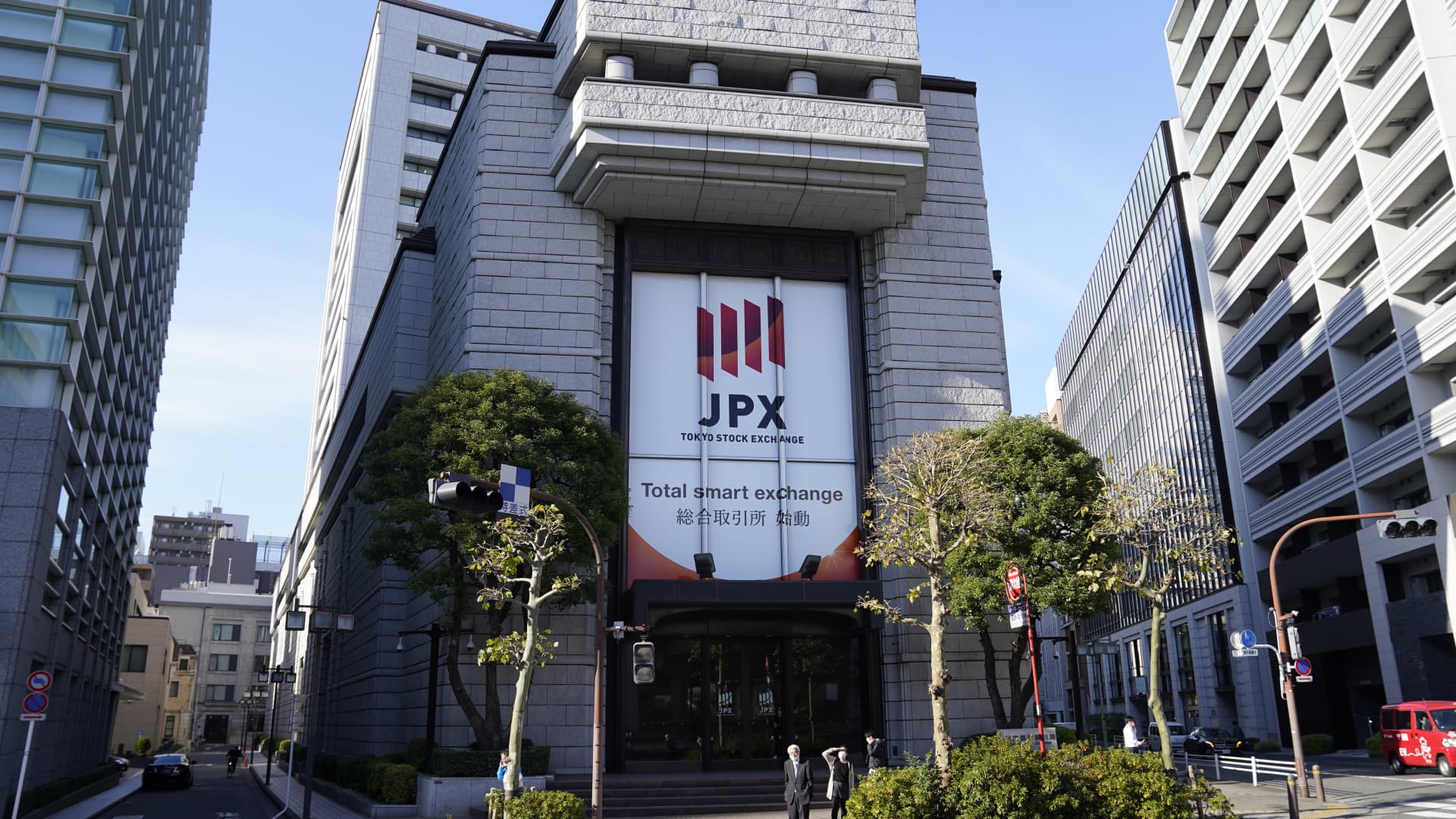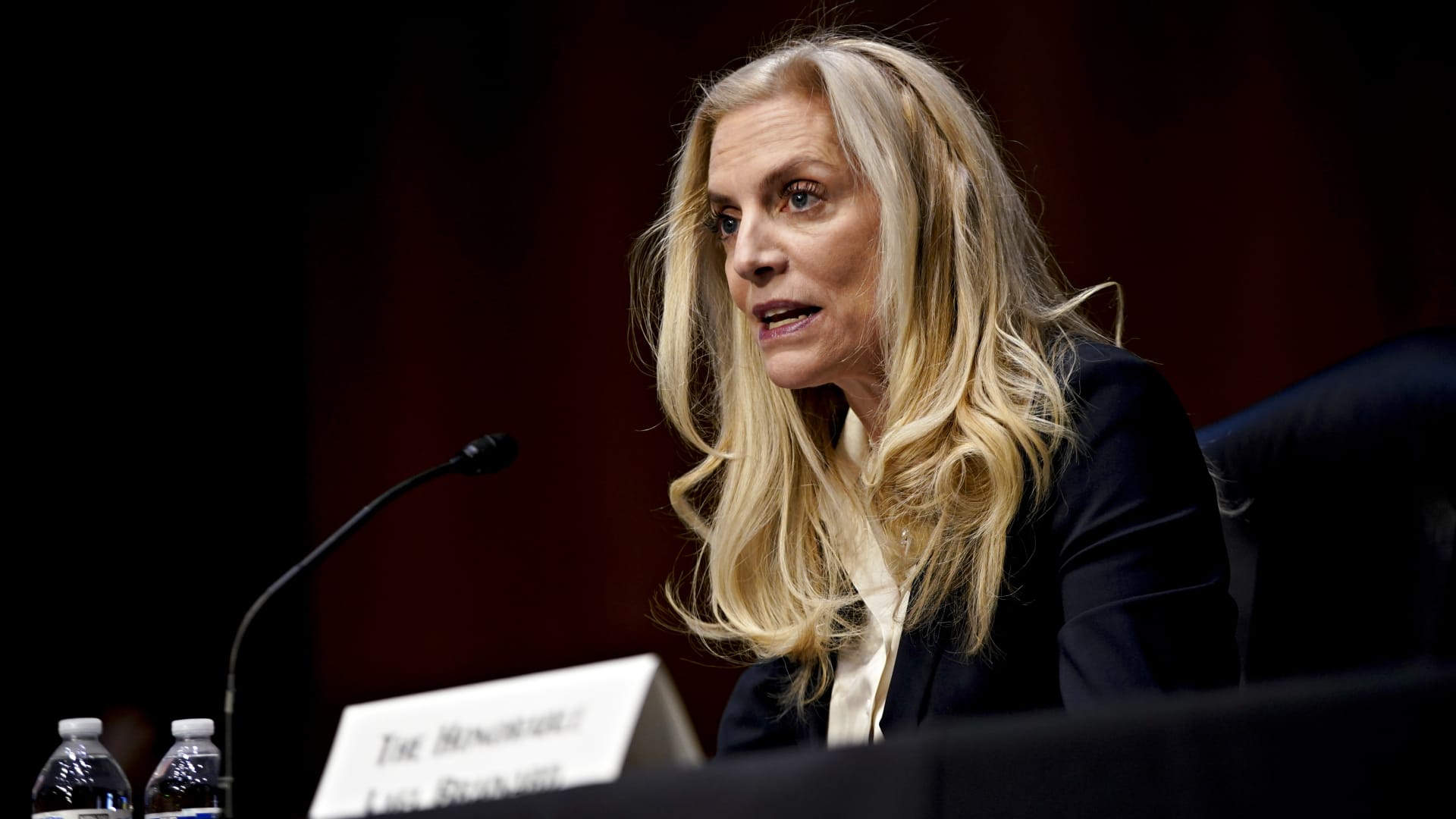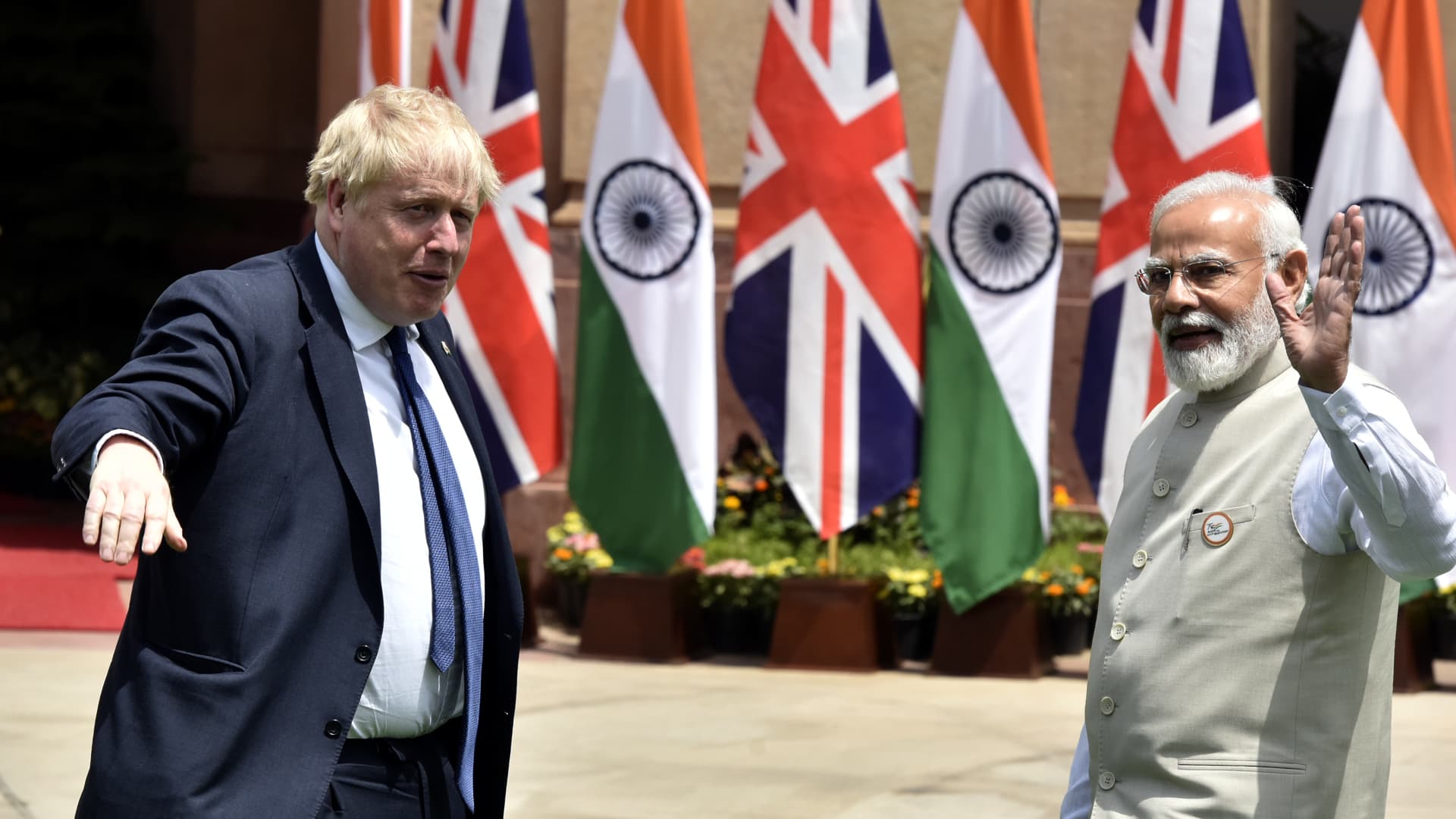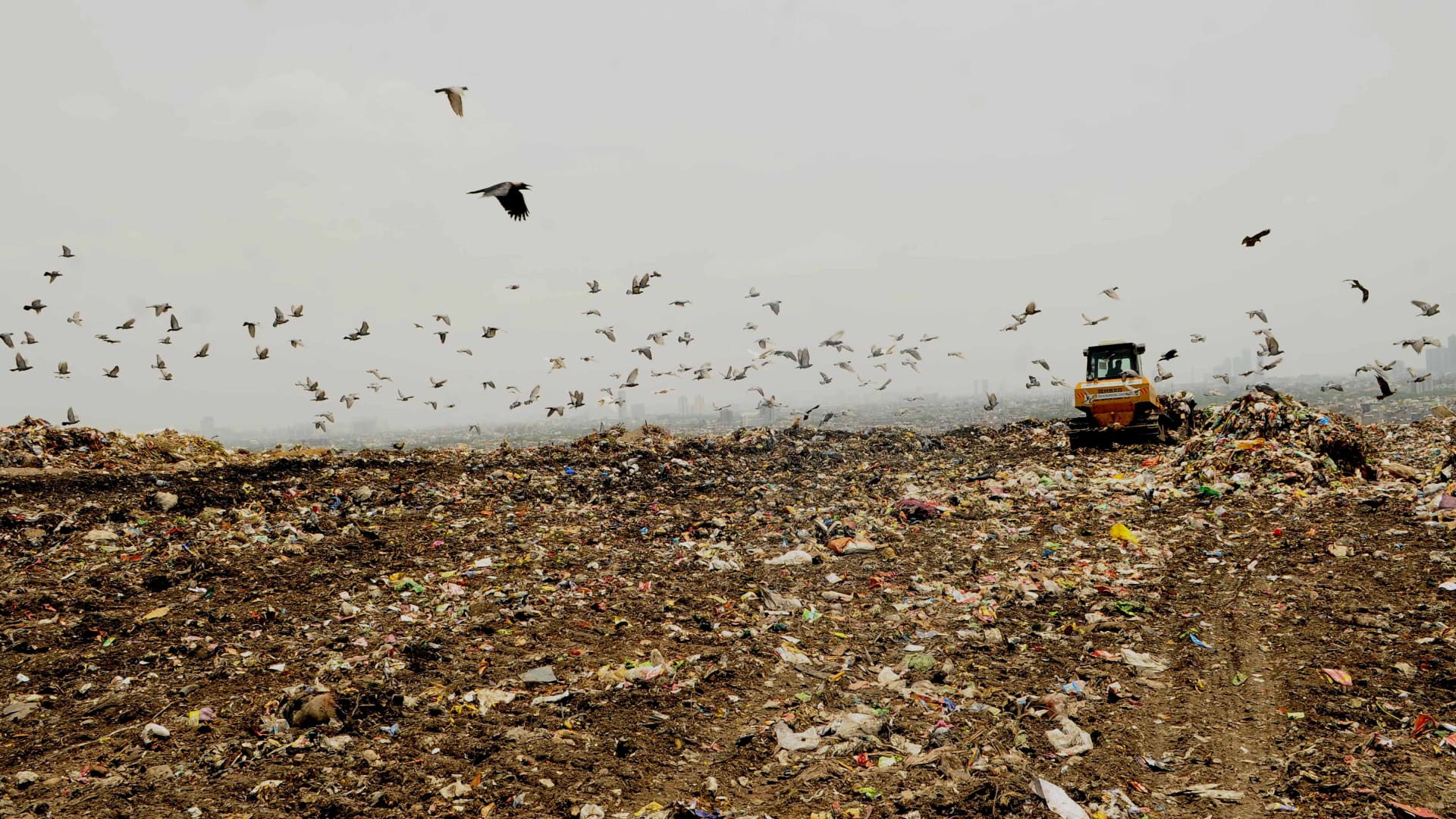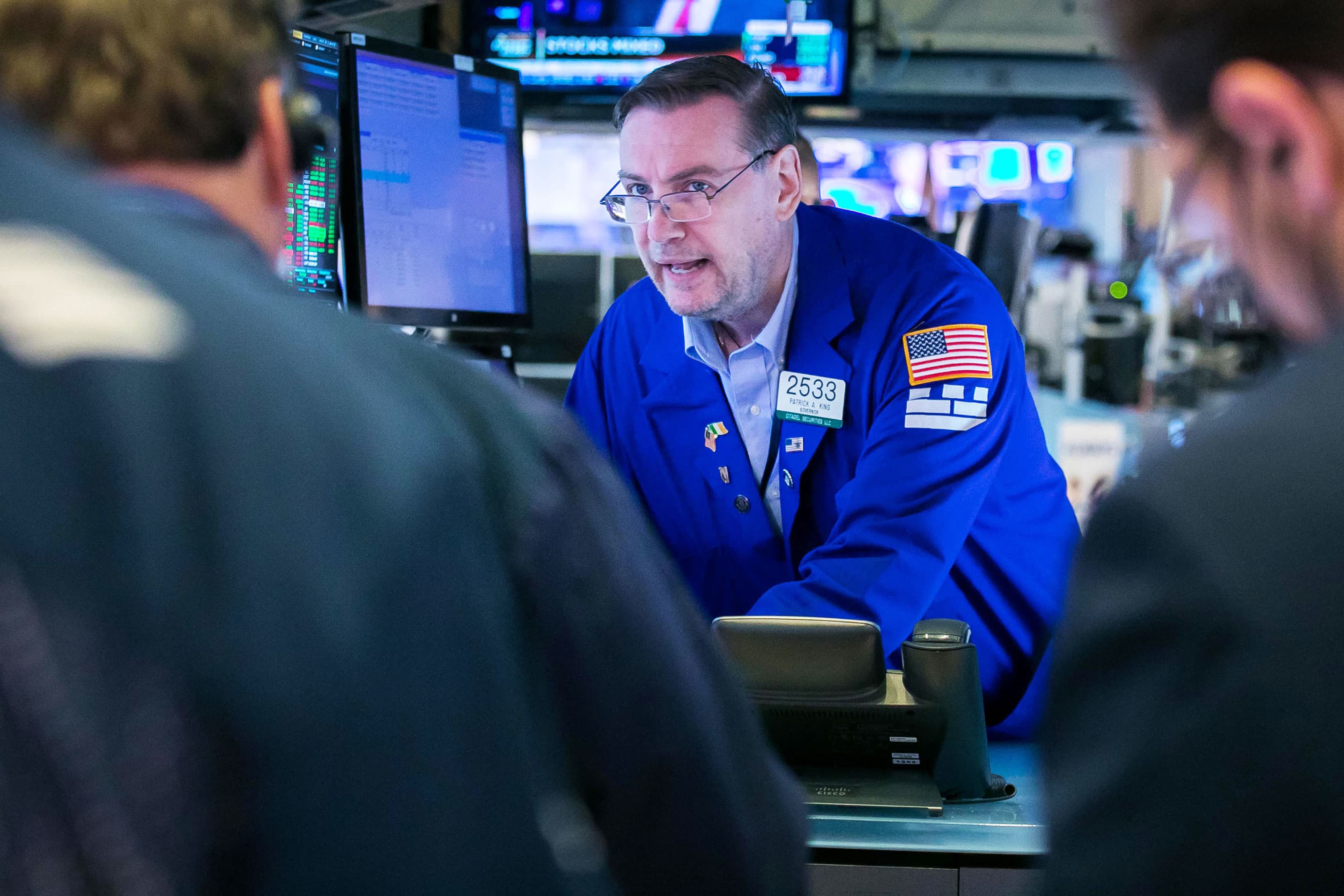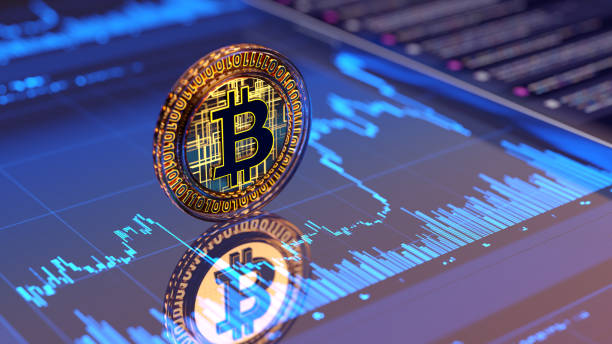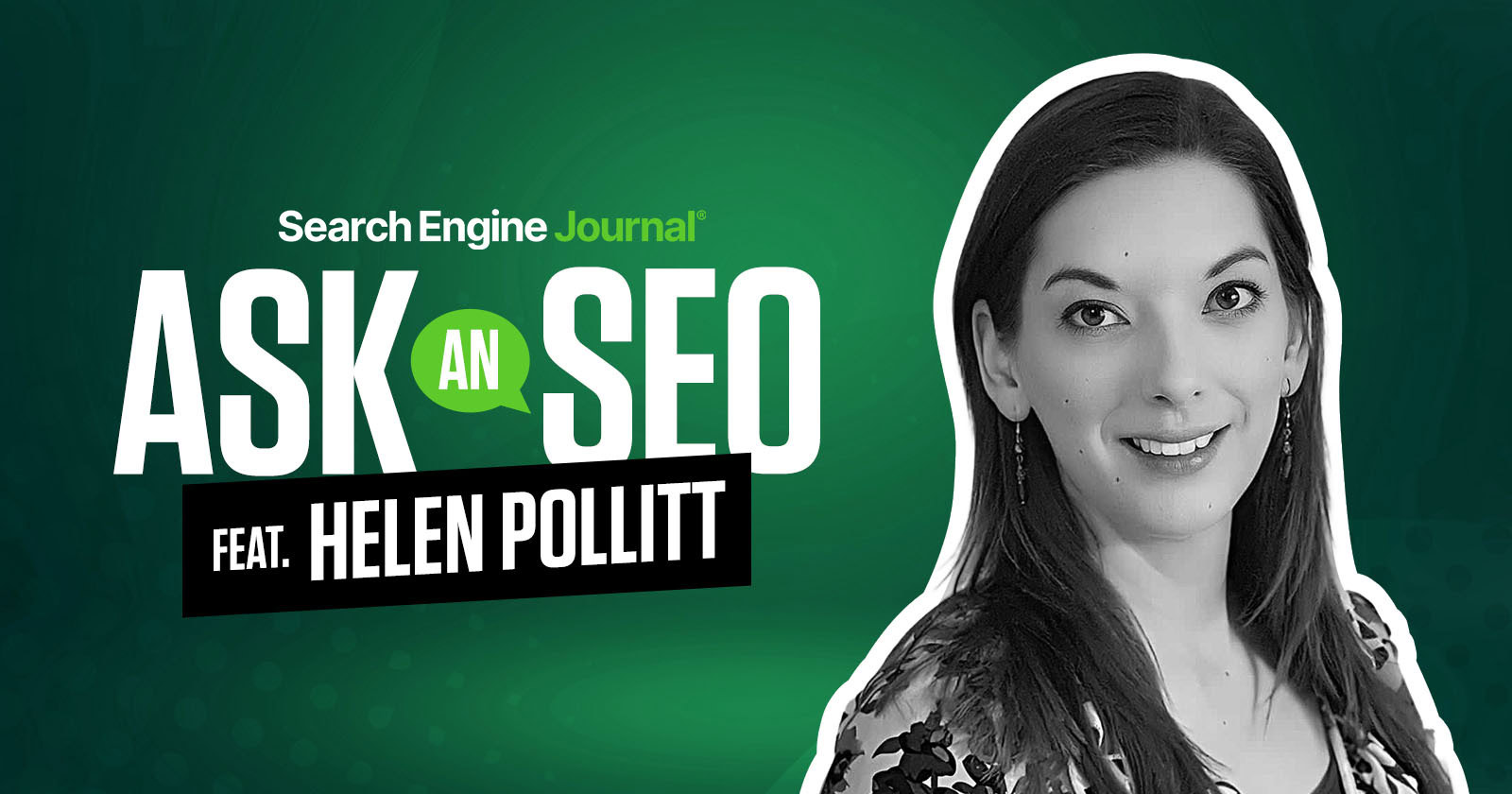Russia's Ukraine invasion sparks watershed moment in EU politics
Prominent politicians have been ripping up decades-old policy doctrine in just a few days.
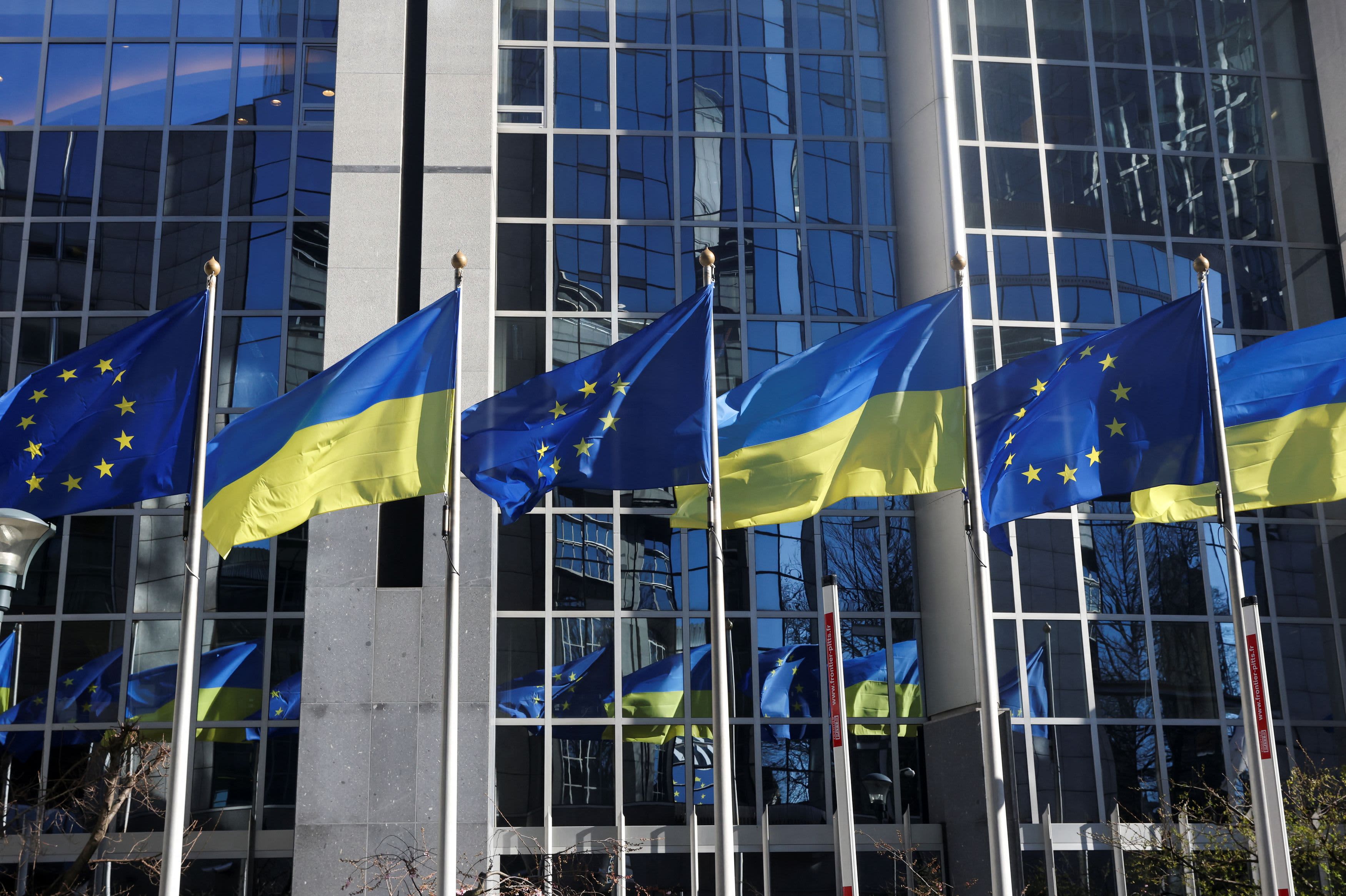
People arrive on a train from Ukraine at the main railway station in Przemysl, Poland on February 27, 2022.
Nurphoto | Nurphoto | Getty Images
Russia's invasion of Ukraine has sparked a watershed moment in European politics, with prominent politicians ripping up decades-old policy doctrine in just a few days.
"This weekend, we have seen a tectonic shift in Europe's approach to Russia," Frederick Kempe, president of the foreign policy think tank Atlantic Council, said Monday on CNBC's "Capital Connection."
Over the weekend, Germany said it would send lethal weapons to Ukraine, while also stepping up its military spend to more than 2% of of its GDP. The country, due to its role in World War II, had historically refused to send deadly weapons to any conflict zone, including Ukraine, and had also chosen to make only small public investments on its defense capabilities. This has now been turned on its head.
In Poland and Hungary, two nations that took a harder line against the EU when welcoming refugees from Syria and other war-torn countries, have now become the most important reception areas for Ukrainians fleeing the violence.
And the EU, the 27 member bloc often criticized for its slow processes and lack of consensus, has not only swiftly approved severe sanctions unanimously; but has also said it would finance — for the first time in its history — the purchase and delivery of weapons to a country in conflict.
"The developments over the weekend on the EU front have been quite stunning. In Brussels and especially in Berlin," a long-time EU official, who did not want to be named due to the sensitive nature of the situation, told CNBC Monday.
The same official added: "Many hoped to see this strength of purpose in the face of such an outrage, but few believed it would materialize so quickly."
Future policy implications
Luis Garicano, a member of the European Parliament for the liberal party Renew Europe, told CNBC that the "heroic" stance of Ukraine and its president, Volodymyr Zelenskyy, along with pressure from European citizens contributed to this weekend's significant changes in European politics.
"It changes everything," he said about future policymaking in the EU, adding that the war in Ukraine had made it clear that the European Union needs a strong and unified foreign policy.
Northern and eastern European countries have usually been "the most skeptical" toward a unified EU foreign policy, Garicano also said, but noted that the conflict is a problem for both regions.
Northern countries, notably Finland and Sweden, have also been subjected to thinly-veiled threats from Russia regarding any ascension to NATO.
Nations such as Poland, Hungary, and the Baltic countries, including Estonia and Lithuania, are concerned that the conflict might impact them too given their geographical proximity with Russia.
It is fair to say that the EU has risen to the challenge, which bodes well for strategic autonomy ambitions.
Emre Peker
director at consultancy Eurasia Group
This renewed political context could bolster Europe's strategic autonomy — a concept that pushes the bloc to develop its own defense capabilities and which President Emmanuel Macron of France has been advocating for several years.
"It is fair to say that the EU has risen to the challenge, which bodes well for strategic autonomy ambitions," Emre Peker, director at consultancy Eurasia Group, told CNBC over the phone.
"I still don't anticipate an EU army," he said, but added that the Russian aggression against Ukraine "will now move [this] discussion forward."
French election
As such, Macron may benefit from this political environment when seeking reelection in about a month's time.
"War in Ukraine will have a powerful impact on the French presidential elections, making the re-election of President Emmanuel Macron even more likely," Mujtaba Rahman, managing director at Eurasia Group, said in a note last week.
Macron is expected to announce in the coming days that he will run for a second mandate as France's leader.
The 44-year old has tried to be Europe's main mediator with Russia's Vladimir Putin to avoid any invasion. Some have criticized him for being "too fresh" when approaching the Kremlin, but his efforts on top of the close links that some of his political opponents have with Russia could boost his chances.
"Despite the failure of his attempts to broker a diplomatic solution; the four candidates and parties closest to Macron in the polls—especially the rival far-right candidates—have an embarrassing history of admiration for the Russian President, Vladimir Putin," Rahman added.
Ukraine membership of the EU
The EU become a club of 27 nations after the United Kingdom departed in January of 2020, and the last time that a country joined the group was in 2013 — Croatia.
The deep financial crisis of 2008 and the ensuing sovereign debt crisis put a brake on the EU's expansion.
However, Poland, Slovenia and Lithuania have said that the process for Ukraine to join the EU should be sped up by granting it candidacy status — an official recognition that a country wants to join the EU and is doing the necessary reforms to become one.
Flags of European Union and Ukraine flutter outside EU Parliament building, in Brussels, Belgium, February 28, 2022.
Yves Herman | Reuters
Ukraine's President Volodymyr Zelenskyy has asked the EU for immediate accession to the bloc under a special procedure, Reuters reported Monday. The European Commission, the executive arm of the EU, was not immediately available for comment when contacted by CNBC on Monday.
Another EU official, who did not want to be named due to the sensitive nature of the topic, said that "these things are very, very long and complex procedures, so it will not help Zelenskyy immediately."
The same official said that EU leaders could discuss this topic at their next meeting in early March.

 ShanonG
ShanonG 







